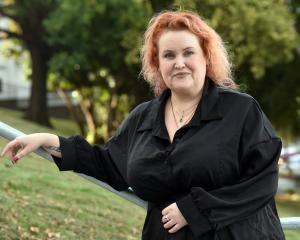Senior Constable Holt (47) has been a familiar sight for thousands of students since taking over the role in 2006.
During his eight years on the university beat he has noticed a pleasing shift in the perception of students, coupled with a significant drop in crime in the North Dunedin area.
Born in East London and raised in Durban, South Africa, he moved to Auckland with his family when he was 15.
''When we arrived, there weren't many South Africans and it was just after the Springbok tour, so there weren't too many schools that were happy to take us.''
With the support of then principal John Graham, he attended Auckland Grammar, and later attended the University of Otago following his sister's endorsement of Dunedin.
After graduating with a commerce degree, he joined the police in 1991.
''I always wanted to join and didn't want to sit in an office all my life.''
He enjoyed stints in south Auckland, a great learning experience.
''Coming from a middle-class background, it exposed me to the other side of life.''
After several years in Auckland, he moved back to Dunedin to work as a general duties officer before starting as campus policeman in 2006.
He loved his role and the support by police and the university, particularly the proctor's office, Campus Watch and students' association.
Snr Const Holt decided it was a good time for a career change for him and his family, and later this month he will begin a new role as deputy head at Toroa College, a university hall of residence in Regent Rd.
''I am not leaving because I am burnt out or disgruntled ... police has been the making of me,'' he said.
The most pleasing aspect of his tenure was the drop in crime in the student area, particularly dishonesty offences such as burglary.
''If you're not investigating criminal offences, you can spend your time on other areas ... so it is not just a win for police. It is a win for taxpayers and all those government departments.''
He noted there had been a major shift in student mindset in how they ''perceive each other behaving badly'', which had impacted on such behaviour.
In addition, the response by the ''student army'' to the Christchurch earthquake helped change perceptions in the minds of the public, he said.
The majority of students studied hard and socialised responsibly and ''never come to the attention of authorities''.
''It is only the small minority that keeps Campus Watch and the proctor's office busy, and they get all the publicity.''
His job has been advertised.












